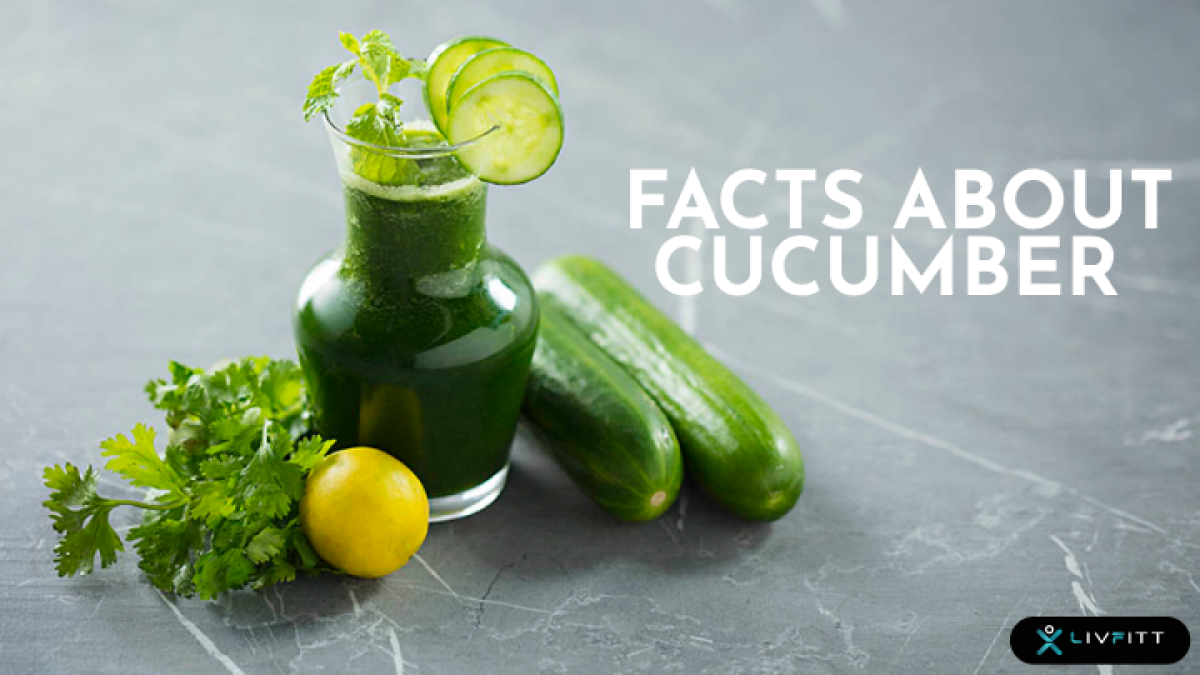
Nutritional Facts about Cucumber
Cucumbers are popular garden vegetables because they are long, lean, and green. They are technically fruits in the same family as watermelons and pumpkins, but most people consider them vegetables.
Cucumbers are native to India, have a melon-like flavour, and sometimes can be slightly bitter.
Fights Dehydration: Water is considered to be an important fluid that is essential for your body. Having less than the required amount of water in the body results in dehydration, causing you to be susceptible to several diseases. Thankfully, including cucumber in your daily diet replenishes the lost water within your body, keeping you perfectly hydrated. Do remember to eat a few slices of cucumber after a strenuous round of workout or exhausting physical activity, especially during the height of summer.
Fiber-Rich: Cucumber is considered a good source of nutritious fiber that will help your body function properly. The combination of fiber and water in cucumbers can help prevent constipation and can increase regularity. This is why dieticians advise diabetics to consume it regularly, as it can cause the pancreas to secrete the right amount of insulin, thus helping in regulating the sugar produced.
Boosts Bone Health: Cucumbers are also a source of calcium necessary to eliminate the risks of low bone density and fractures. Do not fail to add cucumber to your diet, as you will enjoy having strong bones and cartilages despite advancing in years. Cucumber also helps to improve the absorption of calcium, enhancing the repair of bone muscles.
Prevents the Growth of Cancer Cells: Cucumber is known for its anti-cancer properties. It can reduce the spread of cancerous cells throughout the body and decrease the risk of cancer cells developing in your body. Oncologists or cancer specialists ask their patients to consume cucumbers to restore the damaged cells in their bodies that also aids blood circulation.
Reduces Chronic Inflammation: The water content and Vitamin C present in cucumber can arrest the spread of damaged cells in your body, thus saving you from multiple chronic inflammatory conditions, including heart ailments. The antioxidants in cucumber will fight inflammation by boosting the immune effects of your body.
Provides Beautiful Hair: The sulfur and silicon present in cucumber can help strengthen and rejuvenate your hair. You will have improved hair growth with the hair becoming soft and silky to the touch. The hair will be supple and not break easily either.
Prevents Constipation: An insufficient amount of water and dietary fibres in your body may cause constipation, causing you great discomfort. Remember to eat cucumber salad every single day to replenish the water and fibres in your body so that the passage of stool becomes smooth and painless.
Healthy Skin: Forget expensive skin treatments by application of pricey lotions and oils. Consume cucumbers instead to ensure healthy and glowing skin that remains blemish-free, with wrinkles and lines becoming a thing of the past. Cucumber can also be applied topically for skin lightening and revitalizing.
Pain Relief: Cucumber contains flavonoids, tannins and other antioxidants this helps to bring down the pain by controlling the number of free radicals released in the body. You do not have to suffer excessive pain because of chronic ailments either. Eat cucumbers every day to reduce the pain if you cannot eliminate it completely.
Fights Bad Breath: You have to brush your teeth twice a day and maintain proper oral hygiene. Unfortunately, you may still be plagued with a bad breath that makes people shun you. No! You do not have to opt for costly treatments to get rid of stinking breath. Have as much cucumber as you want to wash the accumulated bacteria off your gums and teeth.

